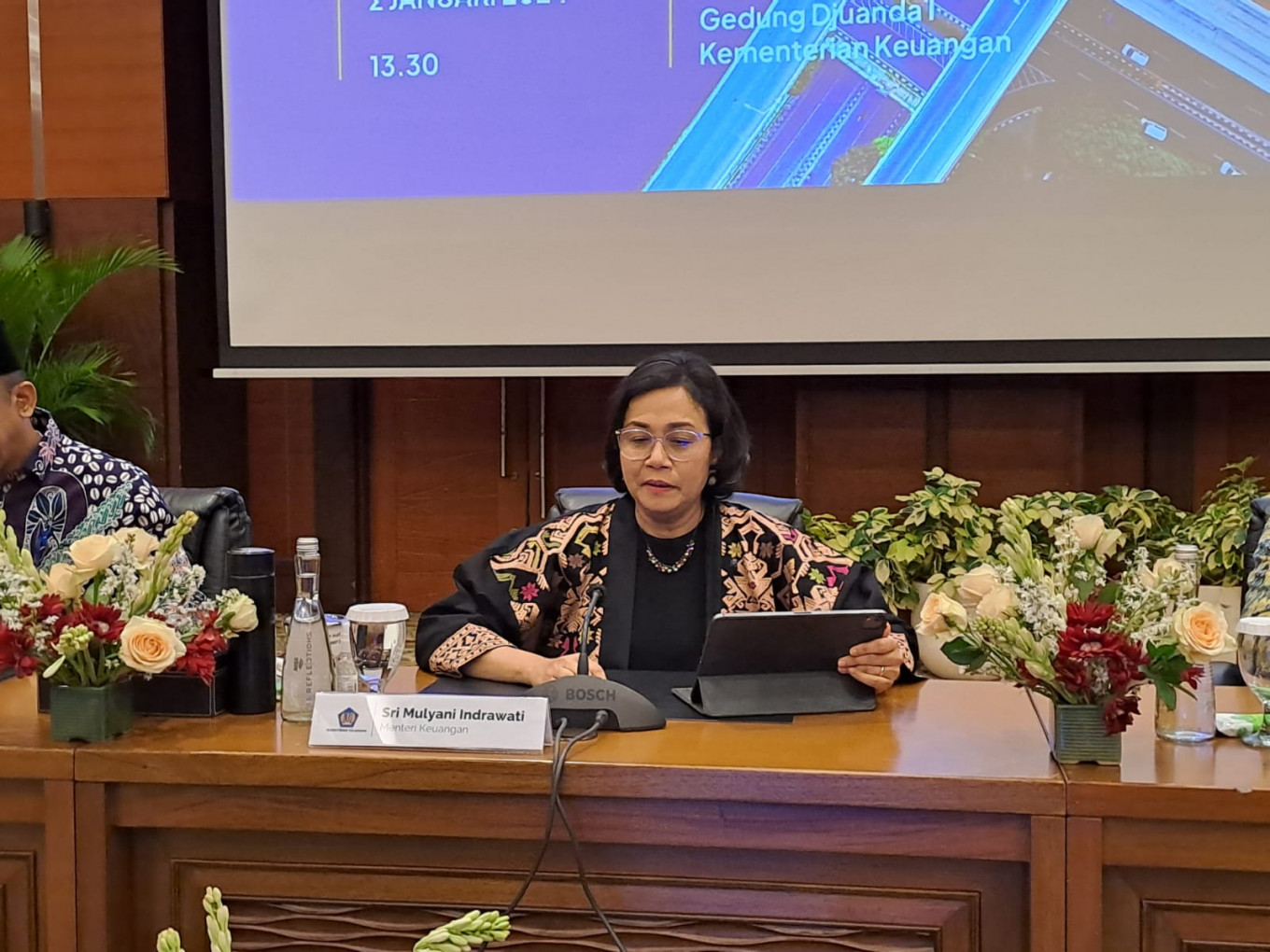Popular Reads
Top Results
Can't find what you're looking for?
View all search resultsPopular Reads
Top Results
Can't find what you're looking for?
View all search resultsGovt focuses on volatile food prices in inflation fight
Indonesia's economy still battles rising prices of staple foods, which are expected to affect people amid the projected economic slowdown this year.
Change text size
Gift Premium Articles
to Anyone
F
inance Minister Sri Mulyani Indrawati has said that controlling volatile food prices, including rice, chilies and onions, is one of the government's main focuses to curb inflation and maintain people's purchasing power.
"We continue to focus on volatile food prices, as these not only contribute significantly to core inflation, but also directly affect people's purchasing power,” Sri Mulyani said at a press conference on Tuesday.
The country saw its annual inflation hover at 2.61 percent at the end of 2023, according to Statistics Indonesia (BPS), which the agency noted was the lowest in 20 years, discounting figures from the pandemic years.
But the economy still battles with rising prices of staple foods, which are expected to affect people amid the projected economic slowdown this year.
The government says it will also secure food supply and distribution, especially on national religious holidays when demand for certain food items increases significantly. In addition, the government will prepare for the shift in harvest season and mitigate the short-term risks.
The state budget has allocated funds for social assistance programs such as the Family Hope Program (PKH), to help people cope with rising prices. The minister said the increase in the social assistance budget of Rp 20 trillion (US$1.26 billion) had been discussed with the House of Representatives and approved for this year.
Besides providing social assistance programs, another key measure is the food security budget, which amounted to Rp 104.2 trillion in 2023, and has been increased to Rp 114.3 trillion this year.
The food security budget will be used to increase food production, farmers’ welfare, develop agricultural infrastructure and production centers, and strengthen national food reserves.
"So, food assistance is not the only way to control volatile food prices, there are many other measures in the state budget," the finance minister said.
The World Bank has cut growth projections for Indonesia's economy in 2025 from 5 percent to 4.9 percent, as the demand for commodities declines due to the global economic slowdown.
In 2023, the government and Bank Indonesia worked together to maintain the consumer price index (CPI) within the target range of 2 to 4 percent. In 2024, they aim to keep it between 1.5 and 3.5 percent.










